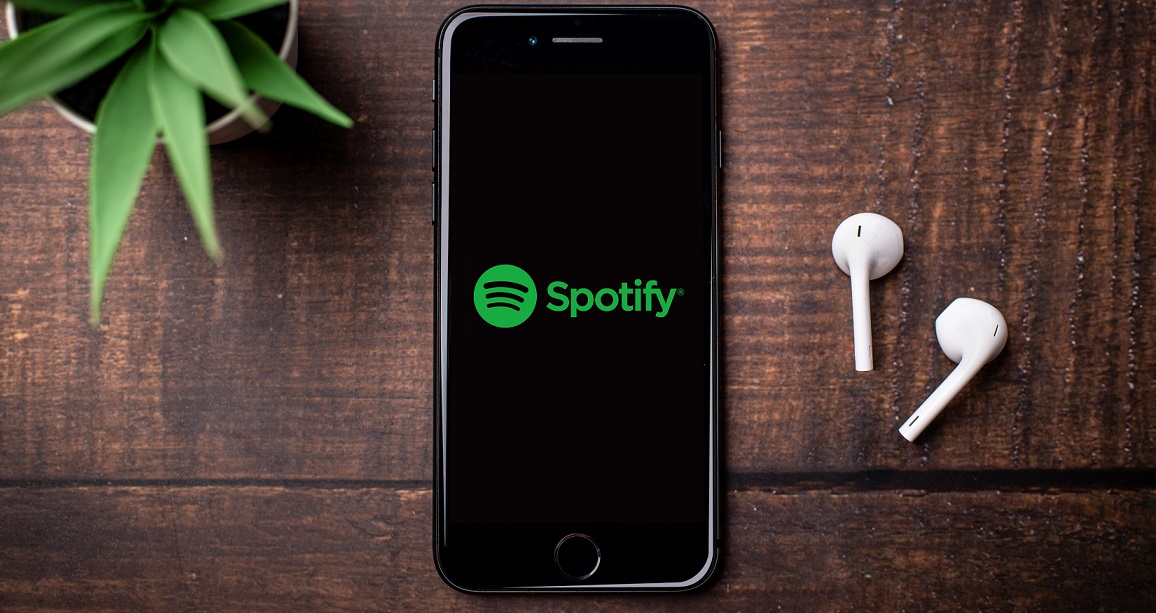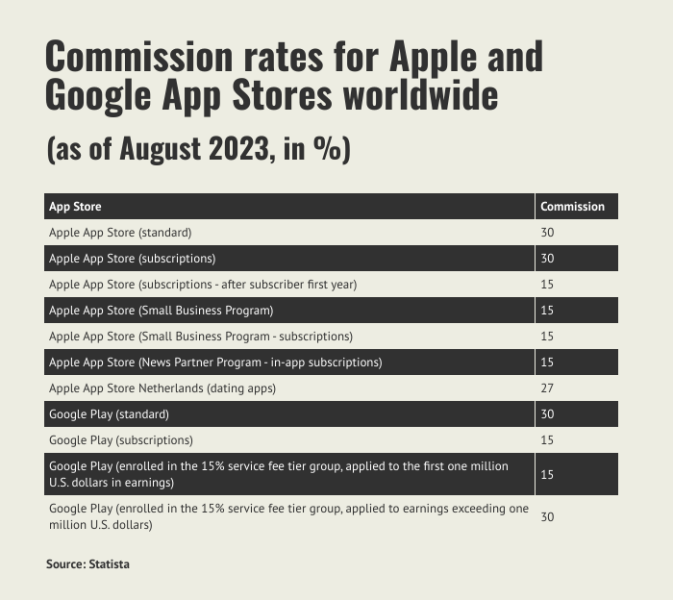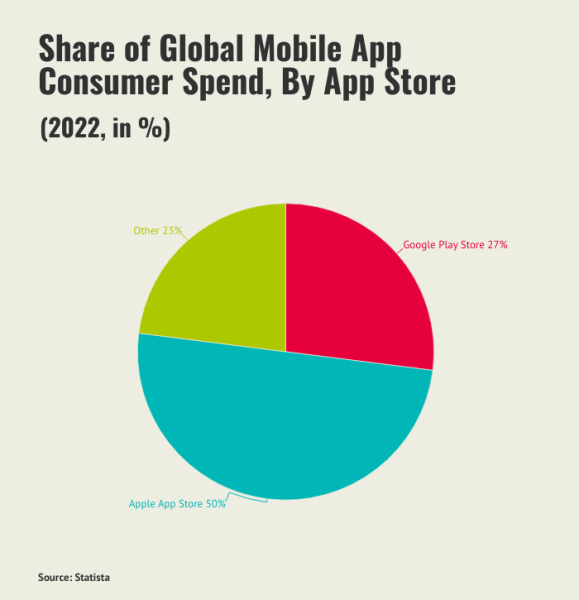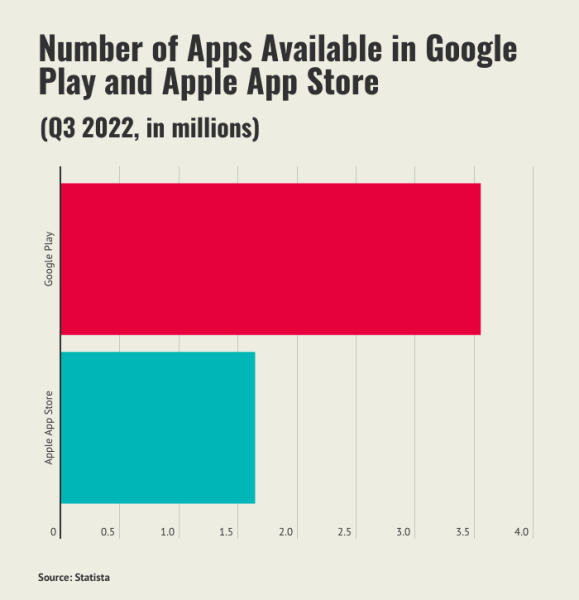CEO of Spotify, Daniel Ek, has stated that Spotify is being unfairly held back by digital platforms like Google and Apple due to their roles as internet gatekeepers.
In an interview with the Financial Times, Ek said:
I find it insane that two companies [Apple and Google] essentially control how over 4 billion consumers access the internet around the world. Not only are they dictating the rules, they also compete directly downstream with those providers.
Ek said the problem isn’t the cost of using the App Store, but Apple and Google’s dominance, acting like gatekeepers and competitors.
He compared it to a mall where many people shop, and businesses competing with Apple have to pay a fee for in-app sales, which he sees as unfair competition. He emphasized that this issue touches every developer, with more now seeing Apple as a rival.
The table below shows Apple and Google’s app stores’ commission rates, which contribute to these tech giants’ gatekeeping and competitive roles, impacting developers and their earnings.
In fact, as of 2022, the two companies’ app stores controlled a large chunk of the global mobile app spend, with Apple in the lead (50%) and Google following behind (27%).
This is despite the fact that Google hosted more than double the number of apps (3.6 million) compared to Apple (1.6 million) in the third quarter of 2022.
Push for Legislative Change
The Spotify co-founder and CEO has been in the UK to talk to ministers about the Digital Markets, Competition and Consumers Bill (DMCC), which is being looked at in parliament.
The bill wants to control competition in digital markets, bringing in new rules to create a fairer space between large tech groups and smaller start-ups. It will let competition bodies set behavior rules for big groups to handle market power and lower the chance of harm to consumers and rivals.
Sarah Cardell, Chief Executive of the Competition and Markets Authority, said of the bill:
Digital markets offer huge benefits, but only if competition enables businesses of all shapes and sizes the opportunity to succeed. This bill is a legal framework fit for the digital age. It will establish a tailored, evidenced-based, and proportionate approach to regulating the largest and most powerful digital firms to ensure effective competition that benefits everyone.
Meanwhile, Ek has urged the UK government to use its independence from the EU to make new rules that would lessen the power of big tech companies and to take the opportunity to exhibit leadership.
He is also calling on EU lawmakers to pass similar legislation called the Digital Markets Act (DMA), and backed the Open App Markets Act in the US.
Navigating the AI Landscape
In the interview, Ek also spoke about artificial intelligence.
He said that growing artificial intelligence is “super important” but worried that rules made now may soon be outdated because technology is changing quickly.
It’s very much developing in real-time. AI capabilities six months ago are not going to be the same as they are in a year or two years from now.
Last week, he told the BBC that he would not ban AI-generated music from his platform.
He highlighted the benefits of AI in enhancing music but opposed its use for impersonating artists without consent. Following an incident where AI-impersonated voices were removed from Spotify, Ek emphasized the need for a balanced approach to AI in music, categorizing tools as acceptable, unacceptable, and a middle ground shaped by real artists, ensuring ethical use of technology on the platform.



